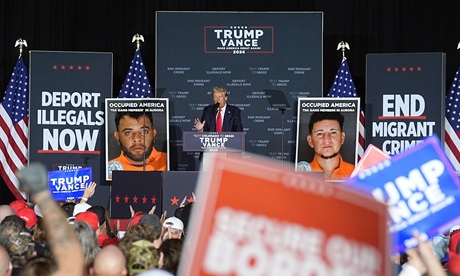One week after former President Donald Trump’s re-election, US Catholic bishops gathered in Baltimore, committing to defend immigrants and the poor despite anticipated challenges.
Leaders of the US Conference of Catholic Bishops (USCCB) emphasised that they would champion vulnerable communities and work towards immigration reform.
“As the successors of the Apostles and vicars of Christ in our dioceses, we never backpedal or renounce the clear teaching of the Gospel” said Archbishop Timothy Broglio, president of the conference. “We proclaim it in and out of season.”
Commitment to human dignity
Broglio, who also leads the Archdiocese for the Military Services, said that Catholic teachings on human dignity encompass all stages of life. “Human dignity should be protected from womb to tomb” he stated.
He stressed that the bishops would work to “defend and lift up the poor” and to “encourage immigration reform, while we continue to care for those in need who cross our borders”.
The archbishop clarified that the conference “certainly does not encourage illegal immigration” and reminded attendees of their responsibility to see Christ in “the hungry, thirsty, naked, homeless, stranger or the sick”.
Concerns on mass deportations
El Paso Bishop Mark Seitz, chair of the USCCB’s migration committee, spoke on the potential for mass deportations under Trump’s administration. Seitz said the conference would “raise our voice loudly” if fundamental protections for migrants were threatened, calling it a “test for our nation” regarding its commitment to human rights.
“We will raise our voice loudly if those basic protections for people that have been a part of our country from its very beginning are not being respected” Seitz said. He emphasised that the church’s role includes advocating for both legal and human rights.
Conscience and the Military
Broglio also addressed concerns about potential military involvement in deportation efforts. While military personnel typically cannot object to individual policies or actions, Broglio noted that “no one can be obliged to go against his or her conscience”.
He added that military chaplains would support personnel in navigating ethical conflicts within the constraints of military service.
Looking forward, Broglio noted economic considerations around potential mass deportations, suggesting that filling open jobs could be a more pragmatic approach.
